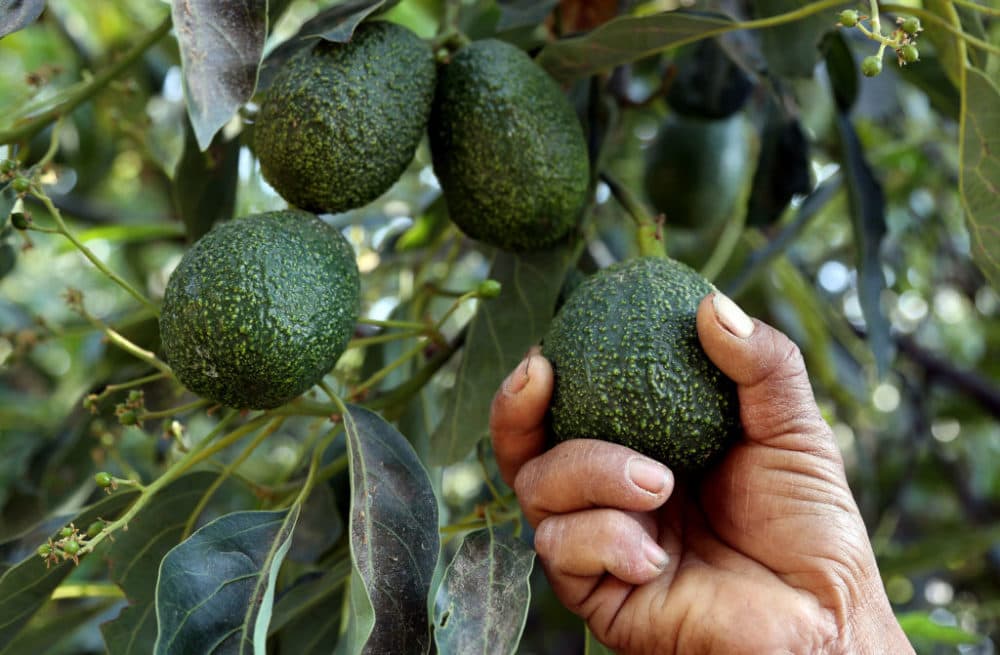Advertisement
Why Avocados Attract Interest Of Mexican Drug Cartels

Earlier this month, Mexican officials discovered the body of a second murdered activist who worked at the Monarch Butterfly Biosphere Reserve in the mountains of Michoacán.
Reports on the murders say clandestine avocado farms had something to do with the two deaths. Mexican drug cartels have broken into the lucrative avocado business in the state of Michoacán, where most of the avocados imported to the U.S. come from.
For several years, the cartels have been diversifying their portfolios to include a range of legal economies in addition to drugs, says Eduardo Moncada, an assistant political science professor at Barnard College.
“Avocados represent a major source of income in the state of Michoacán in Mexico,” says Moncada, who is writing a book in part about extortion in Michoacán. “And as such, they've been mobilizing to try and capture money from that sector.”
The cartel engages in extortion of avocado producers, transporters and packers to gain control over the sector. By taking over lands used to produce avocados, they become “informal owners” of the fields and profit from sales, he says.
The cartels are broadening their portfolios beyond avocados, too. Taking control of land — like the butterfly reserve — allows them to produce more agricultural goods, and the wood and timber there is also valuable, he says.
Mexico’s war on drugs began in 2006 under the reign of former President Felipe Calderón. On top of the violence that the conflict unleashed, it also fragmented the country’s handful of large cartels to many smaller ones, he says.
“In order to survive and thrive in that kind of context, the cartels began to diversify their portfolios in a way to try and gain resources,” he says.
Many avocado growers initially welcomed the cartels, he says. That’s because the cartels gave the growers services the state failed to provide for years, such as security for themselves, their land and products.
The cartels asked for a tax in exchange for these services, but Moncada says they became more predatory toward growers over time. Cartels stopped providing the growers with services but kept charging extortion fees, he says.
Advertisement
Michoacán is also one of the United States’ primary sources for blueberries, strawberries and blackberries. Many berry producers are also being taxed by drug cartels as well, he says.
Despite the difficult situation many growers find themselves in, Moncada doesn’t think Americans should feel like consuming avocados is contributing to the drug cartels. It’s more complicated than that, in part because not all avocados coming from Mexico come from farms involved with the cartels, he says.
“Much like any commodity that we purchase from the phones that we use to the computers that we're reliant on, those commodity chains kind of moved back and forth between the legal and the illegal and the criminal and the formal,” he says, “and avocados aren't an exception to that.”
Lynn Menegon produced and edited this interview for broadcast with Todd Mundt. Allison Hagan adapted it for the web.
This segment aired on February 7, 2020.

